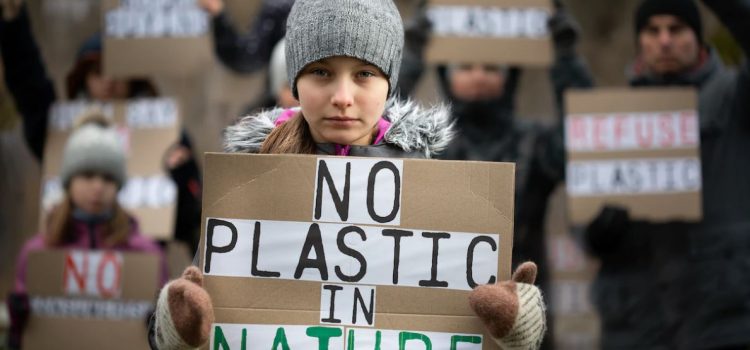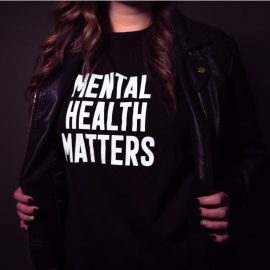
This is a free excerpt from one of Shortform’s Articles. We give you all the important information you need to know about current events and more.
Don't miss out on the whole story. Sign up for a free trial here .
What changes have youth activists brought about? Are they really making a difference?
Youth activists around the world are suing their governments over climate change. Some have forced governments to rework emissions targets or stop deforestation. And even unsuccessful suits can influence public opinion and create pressure for change.
Keep reading for a look at some of the lawsuits and their outcomes.
Youth Activism Is Rising
On June 20, a Montana district court heard the final arguments in Held v. Montana, the first climate-related lawsuit of its kind to go to trial in the United States. The plaintiffs, 16 youth activists between 5 and 22 years of age, argue that the Montana state government is violating their right to a healthy environment through its support for the fossil fuel industry.
With the verdict expected shortly, let’s take a look at where this case fits into the broader landscape of youth climate lawsuits. We’ll also touch on what these lawsuits can accomplish, what they can’t, and where climate-related legal action may be headed in the future.
Climate Lawsuits: Where We Are Now
As of the end of 2022, more than 2,000 lawsuits related to climate change had been filed around the world. Over a quarter of those were filed between 2020 and 2022, a clear sign that climate lawsuits are gaining steam. Many of these suits draw on human rights arguments, stating that the failure to act is putting their lives, liberty, and dignity at risk.
Governments have deep pockets and long tentacles of influence, so just getting a case to trial is a major success. While the results so far have mostly favored the defendants, the balance may be starting to shift. Here’s a selection of recent outcomes:
- Win: In 2013, the Urgenda Foundation took the Netherlands government to court, arguing that its failure to set sufficiently low CO2 emission reduction targets jeopardized the human rights of Dutch citizens. The 2015 ruling required the government to adjust its emissions target, a decision that was upheld by the Supreme Court in 2019.
- Loss: In 2015, 21 youth activists sued the US federal government for violating their rights through fossil fuel policies. In 2020, the Ninth Circuit conceded that the government may have acted irresponsibly but said it didn’t have the authority to determine climate policy. An amended case is going forward as of June this year.
- Loss: In 2016, two environmental groups argued that Arctic oil exploration licenses issued by the Norwegian government were unconstitutional. In 2018, the court ruled in favor of the government, partly because the potential climate damage was too hard to predict. The decision was upheld on appeal in 2020.
- Win: In 2018, 25 young Colombians won a suit against their government in the Supreme Court to stop deforestation in the Amazon. They argued that rapid deforestation violated the right to a healthy environment that’s enshrined in the Colombian constitution.
- Win: In 2020, nine German youth climate activists filed a suit against the German government regarding emissions targets. Their 2021 victory forced the government to set new long-term targets.
The Advantages of Litigating Climate Change
Are climate lawsuits effective? Recent history suggests they might be. Here are some of the advantages of using the law to pressure governments into changing their behavior.
You Can Win
The Dutch, German, and Colombian decisions showed that plaintiffs can win in court, even against powerful defendants. And the odds may be improving, too: Now, any newly filed suit adds to the rising tide of climate lawsuits that will set precedents and clarify laws around the world—allowing lawyers to craft ever more strategic arguments to give their clients the best chance of winning.
A Loss in Court Can Be a Win Outside It
Climate cases receive significant media coverage. If this coverage changes public opinion, even governments that win in court will be forced to revise their targets so voters don’t turn on them. One member of the Norwegian Saami community, for example, noted that his losing case had permanently altered public discourse around drilling in the Arctic.
You Can Leverage Differences Between Legal Systems to Your Advantage
One of the reasons climate lawsuits are so complex is geographical variation. For example, the US Constitution doesn’t guarantee the right to a healthy environment, but the Montana state constitution does—which is why Held v. Montana has a better chance than a similar case targeting the federal government.
The Disadvantages of Litigating Climate Change
While there are clear advantages of taking governments to court, making climate change progress via the law continues to be an uphill battle.
It’s Hard to Win
To date, most courts haven’t favored plaintiffs, especially in the US. The deep pockets of government and large corporate actors allow them to pay lobbyists and wear plaintiffs out with expensive, drawn-out battles.
Adding to the difficulty, most legal systems are set up to remediate past damage rather than to predict and prevent future damage, making forward-looking suits hard to deal with. Judges may also lack the training or desire to engage with the scientific evidence on climate change, especially in countries where climate change is highly politicized.
A Positive Decision Doesn’t Always Translate Into Action
Even a favorable decision might not lead to meaningful action. Powerful actors may simply choose not to comply—for example, while the Dutch and German governments complied with court rulings, the Colombian government didn’t. It can also take months to years before a legal decision starts to influence policy.

Want to fast-track your learning? With Shortform, you’ll gain insights you won't find anywhere else .
Here's what you’ll get when you sign up for Shortform :
- Complicated ideas explained in simple and concise ways
- Smart analysis that connects what you’re reading to other key concepts
- Writing with zero fluff because we know how important your time is






